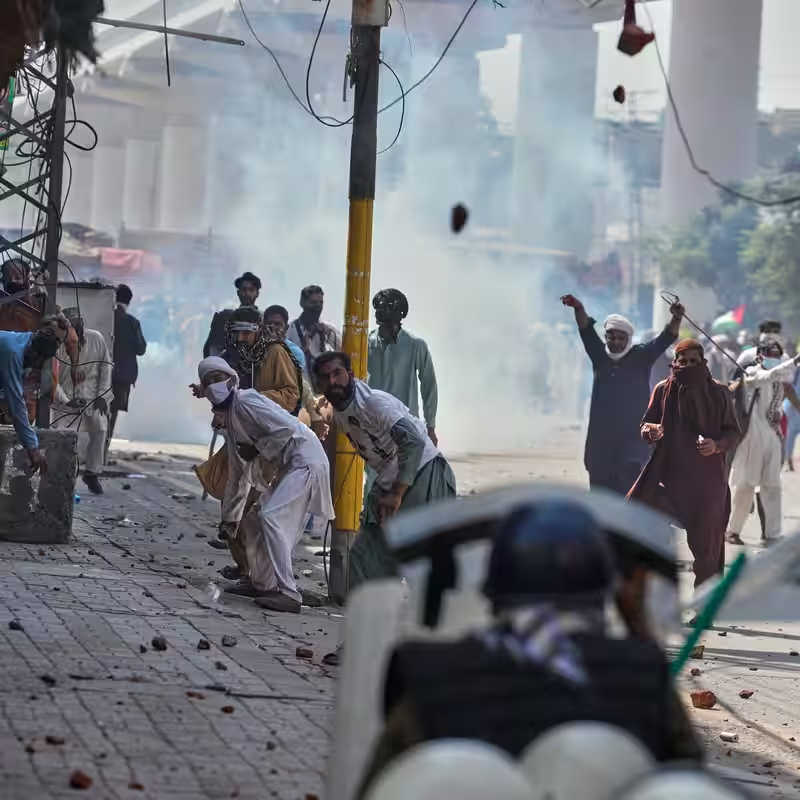Table of Contents
- Pakistan’s Bold Move Against TLP
- Who Is Tehreek-e-Labaik Pakistan?
- Deadly Clashes Spark Government Action
- Political and Religious Fallout
- Can Pakistan Tame Religious Extremism?
- Sources
Pakistan’s Bold Move Against TLP
In a decisive and high-stakes maneuver, the Pakistani government has officially banned Tehreek-e-Labaik Pakistan (TLP), a radical Islamist party whose recent street protests turned deadly. The ban, approved by Prime Minister Shehbaz Sharif’s cabinet on October 23, 2025, follows violent clashes near Lahore that left at least five people dead—including police officers and civilians.
The move underscores Pakistan’s ongoing struggle to rein in religious extremism without triggering mass unrest. TLP, known for its ability to mobilize tens of thousands of supporters overnight, has long operated in a gray zone between political activism and militant agitation.
Who Is Tehreek-e-Labaik Pakistan?
Founded in 2015, Tehreek-e-Labaik Pakistan emerged as a hardline Barelvi Islamist movement centered on defending Pakistan’s blasphemy laws. What began as a fringe group quickly gained traction through fiery street sermons, social media campaigns, and nationwide protests.
TLP’s leadership—composed largely of firebrand clerics—has repeatedly paralyzed major cities with sit-ins and roadblocks, often forcing the government into last-minute concessions. Despite its small parliamentary footprint, the party wields outsized influence due to its grassroots mobilization power and emotional appeal among conservative segments of society.
Deadly Clashes Spark Government Action
The final straw came earlier this month when TLP supporters clashed with police on the outskirts of Lahore, Pakistan’s second-largest city. According to local reports, demonstrators attempted to march toward a sensitive military installation, prompting a forceful police response.
Chaos erupted as protesters threw stones, set vehicles ablaze, and attacked law enforcement with makeshift weapons. Police responded with tear gas and live ammunition. By the end of the confrontation, five were confirmed dead and dozens injured.
Prime Minister Sharif’s office cited the group’s “violent and terrorist activities” as justification for the ban, marking one of the strongest crackdowns on a religious-political party in recent years.
Political and Religious Fallout
The ban has ignited fierce debate across Pakistan. Human rights groups warn of potential overreach, while security analysts applaud the government for finally drawing a line.
“TLP has operated with impunity for too long,” said Dr. Ayesha Malik, a political scientist at Lahore University. “But banning them won’t erase their ideology—it could radicalize their base further.”
Already, social media is buzzing with calls for nationwide protests. Clerics affiliated with TLP have vowed to “defend Islam” and accused the government of bowing to “Western pressure.”
Meanwhile, opposition parties are split. Some support the ban as necessary for national stability; others fear it could destabilize the fragile balance between state authority and religious sentiment.
Can Pakistan Tame Religious Extremism?
This isn’t the first time Pakistan has banned TLP. The group was outlawed in 2021 after similar unrest, only to be reinstated months later following mass protests and political negotiations.
What makes this moment different is the government’s apparent resolve—and the regional context. With economic instability, rising militancy in border regions, and international scrutiny over counterterrorism efforts, Islamabad may see this as a critical test of its governance.
Yet the real challenge lies ahead: dismantling TLP’s network without sparking another wave of violence. Analysts say success will depend on coordinated legal action, community engagement, and—crucially—offering alternative religious narratives that reject extremism.
Sources
The New York Times: Pakistan Bans Radical Islamist Party After Deadly Clashes




